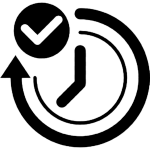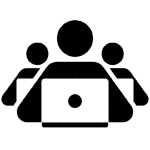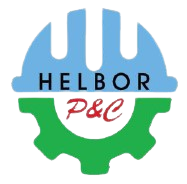Services
…process & technology follows.

TRAININGS
Focused towards Business Optimizations and Improvement Principles through Workforce Development
CONSULTING
Focused on helping Organizations towards their journey of deploying Best Practices for Business Excellence
Awareness | Internal Auditor | IRCA Lead Auditor | Documentation & Implementation Training
- ISO 9001 – Quality Management System
- ISO 14001 – Environment Management System
- OHSAS 18001 – Health & Safety Management System
- ISO 20000 – IT Service Management
- ISO 22000 – Food Safety Management System
- ISO 17025 – Laboratory Management System
- ISO 20121 – Event Sustainability Management System
- ISO 22301 – Business Continuity Management System
- ISO 31000 – Enterprise Risk Management System
- ISO 27001 – Information Security Management System
- ISO 28000 – Supply Chain Security Management System
- ISO 10002 – Customer Satisfaction Complaint Management System
- ISO 10015 – Training Quality Management: Guidelines for Training
- ISO 29990 – Learning Services for Non-Formal Education & Training
- ISO 50001 – Energy Management System
- ISO 55000 – Asset Management System
- Introduction to Lean Six Sigma
- Lean Six Sigma Green Belt
- Lean Six Sigma Black Belt
- Master Black Belt
- Lean Healthcare
- Lean Warehousing
- Enterprise Risk Management
- Enterprise Performance Management
- Project Management
- Balanced Scorecard
- Business Process Management
- The EFQM Model:
- a. Leadership for Excellence (L4E)
- b. Journey to Excellence (J2E)
- c. Internal Assessor Training
- d. EFQM Assessor Training
- Innovative Problem Solving & Decision Making
- Leading High Performance Teams
- Strategic Thinking, Planning & Execution (Balanced Scorecard Approach)
- Supervisory Management Skills
- ILM Accredited Programs on Leadership
- CIEH-UK Food Safety Courses
- Highfields Accredited Courses
- ISO 22000 – Awareness & Lead Auditor Courses
- HACCP
- Local Legislation
- IOSH
- CIEH Accredited Courses on Health Safety & Environment
- First Aid & Fire Safety
- Defensive Driving Course
- HAZOP-HAZID
- Safety Officer Course
- Construction Site Specific Programs
- Dijbouti Construction Standards
- Conflict Management & Negotiation Skills
- Professional Customer Service
- Business Communication Skills
- Presentation Skills
- Contract Management
- Decision Making
- Team Building & Motivation
- Innovation & Problem Solving
- Business Writing
- English Language
- De Bono’s 6 Thinking Hats
- CIPD Accredited Programs on Personal Development
- CIPS Accredited Programs for Procurement & Supply
- Neuro Linguistic Programming (NLP) Course
Translating Sustainability into Organizational terms –
Strategic Sustainability Consulting provides organizations with the tools and expertise they need to actively manage their social and environmental impacts. We specialize in helping under-resourced organizations implement sustainable solutions usually reserved for large, multinational companies.
The OHSAS 18001 certification primarily focuses on the occupational risk of any organisation while the ISO 45001 focuses on both the risk and opportunities. By doing so, it not only eliminates the chance of future hazards and also finds opportunities to improve the overall safety standard.
CONTACT US
As business pressures intensify, one thing is clear that success will demand not only new skills and strategies but also new standardization perspectives on how to build a strong business. This is the “smart business” difference.
Dijbouti is a growing economy, with demand for ISO Certifications as a next step for organizations to standardize their process maturity.
We have a 100% certification record in working with companies implementing Management Systems since many years. But that is not just what we do.
Our consultants work with organizations of all sizes – from leading multinationals to small, innovative start-ups with a proven record in not just achieved certification for our client’s management systems but in going further to establish a ‘Lean Business Management System’ that is working for the business, tailored to the business and benefiting the business.
We have worked with various organizations, which are Govt., Semi-Govt, small and medium sized Private companies for their ISO Implementation journeys.
ERM is a capability that involves identifying, measuring, monitoring, reporting and responding to risks across an enterprise in a way that is aligned with the enterprise’s objectives and risk appetite. ERM should address all major risk types including compliance, financial, hazard, and operational, as well as strategic risks across all major business units and functions within an enterprise.
ERM emphasizes value creation as well as value preservation and the application of risk quantification techniques to develop risk portfolios using measures such as Cash Flow at Risk and Earnings at Risk.
Why Implement ERM?
In recent years, more than ever, senior management has been searching for better ways to make informed decisions in order to achieve their business objectives. This has commonly been assisted through risk management practices.
The gradual transition from conventional risk management to all encompassing Enterprise Risk Management (ERM) has enabled senior management to be aware of the risks to which it is susceptible, while developing plans designed to respond to these very risks.
ERM has also gained substantial momentum because of the growing importance of solutions for compliance and regulatory norms.
Risk Services:
- ERM Capability Assessment & Roadmap
- Risk Appetite Definition
- ERM Policy Development
- Enterprise Risk Assessment
- End-to-End ERM Design & Implementation
- ERM System Selection & Implementation
- Risk Analysis & Quantification
- Risk Transfer Mechanisms
A performance metric used in strategic management to identify and improve various internal functions and their resulting external outcomes. The balanced scorecard attempts to measure and provide feedback to organizations in order to assist in implementing strategies and objectives.
This management technique isolates four separate areas that need to be analyzed: (1) learning and growth, (2) business processes, (3) customers, and (4) finance. Data collection is crucial to providing quantitative results, which are interpreted by managers and executives and used to make better long-term decisions.
A Balanced Scorecard defines what management means by “performance” and measures whether management is achieving desired results. The Balanced Scorecard translates Mission and Vision Statements into a comprehensive set of objectives and performance measures that can be quantified and appraised. These measures typically include the following categories of performance:
- Financial performance (revenues, earnings, return on capital, cash flow)
- Customer value performance (market share, customer satisfaction measures, customer loyalty)
- Internal business process performance (productivity rates, quality measures, timeliness)
- Innovation performance (percent of revenue from new products, employee suggestions, rate of improvement index)
- Employee performance (morale, knowledge, turnover, use of best demonstrated practices)
What Balanced Scorecards do:
- Articulate the business’s vision and strategy.
- Identify the performance categories that best link the business’s vision and strategy to its results (e.g., financial performance, operations, innovation, employee performance)
- Establish objectives that support the business’s vision and strategy.
- Develop effective measures and meaningful standards, establishing both short-term milestones and long-term targets.
- Ensure companywide acceptance of the measures.
- Create appropriate budgeting, tracking, communication, and reward systems.
- Collect and analyze performance data and compare actual results with desired performance.
- Take action to close unfavorable gaps.
And we companies achieve this!
We make your working environment as safe as possible by carefully performing Health, Safety & Environment assignments through a range of international best practices, we ensure that organizations have effective occupational health and safety systems in place to protect employees, generate customer confidence and enhance your business reputation.
Where does our specialization lie?
We specialize mainly in the Oil & Gas, Construction & Engineering, Healthcare, Government, Education and Manufacturing sectors.
HSE Services:
- Quantitative Risk Assessment
- Fire Risk Assessment
- Environment Impact Assessment
- HSE Audits
- Project OHS Support – Bridging, Contractor Management, Auditing and Assurancev
- Safety Case Development
- HAZID, SIMOP, HAZOP, Risk Reviews & Studies
- Emergency Response and Crisis Management
- Behavioral & Cultural Safety Assessments and Development of Systems to Support
- Incident Investigations and Management
- Asset Integrity Management
- Construction Safety
- Provision of Contract OHS and HSE Specialists
Training Need Analysis –
Effective training or development depends on knowing what is required – for the individual, the department and the organization as a whole. With limited budgets and the need for cost-effective solutions, all organizations need to ensure that the resources invested in training are targeted at areas where training and development is needed and a positive return on the investment is guaranteed.
Effective TNA is particularly vital in today’s changing workplace as new technologies and flexible working practices are becoming widespread, leading to corresponding changes in the skills and abilities needed.
TNA enables organizations to channel resources into the areas where they will contribute the most to employee development, enhancing morale and organizational performance. TNA is a natural function of appraisal systems and is key requirement for the award of Investors in People.
Effective TNA involves systematic planning, analysis and coordination across the organization, to ensure that organizational priorities are taken into account, that duplication of effort is avoided, and economies of scale are achieved. All potential trainees should be included in the process, rather than rely on the subjective evaluation of managers.
Training needs analysis identifies training needs at employee, departmental or organizational level in order to help the organization to perform effectively. The aim of training needs analysis is to ensure that training addresses existing problems, is tailored to organizational objectives, and is delivered in an effective and cost-efficient manner.
Training needs analysis involves:
- Monitoring current performance using techniques such as observation, interviews and questionnaires
- Anticipating future shortfalls or problems
- Identifying the type and level of training required and analyzing how this can best be provided.
Capability Building Principles –
Based on Adult Learning Principles: The methodology used for learning is a rich blend of skill building, group workouts, role plays, videos and various exercises. Besides the sessions delivered by our consultants, the training material has also been thought through keeping different audience in mind.
ROI Based: We adopt a very practical and outcome-based approach for all our learning and skill building engagements. The contents of the programs are designed with a focus on ROI from learning to the organization and participant.
Industry specific: Our learning products have been designed in-house to suit the exact requirements of our clients. The material caters to various needs and requirements and has been created to match needs of various sectors and intensity of seriousness.
In today’s market, organizations are scrambling to find ways to enhance revenues and to reduce costs. But knowing which projects to select for the best and fastest returns presents a challenge to organizations whether at the beginning of a Lean Six Sigma implementation or needing to reenergize a current program.
By implementing Lean Six Sigma and business process management concepts and training in your organization, you will benefit from a streamlined organization in terms of people, processes, technology and the underlying strategy and objectives. Leading companies as Xerox, Caterpillar, BMW, GE, HP, Citigroup, American Express, DHL have already engaged in implementing lean culture and training.
The EFQM Excellence Model is a non-prescriptive framework for organizational management systems, promoted by EFQM (formerly known as the European Foundation for Quality Management) and designed for helping organizations in their drive towards being more competitive.
Regardless of sector, size, structure or maturity, organizations need to establish appropriate management systems in order to be successful.
The EFQM Excellence Model is a practical tool to help organizations do this by measuring where they are on the path to excellence; helping them understand the gaps; and then stimulating solutions.
Road Traffic Safety Management System
ISO 39001 is designed to help organizations reduce, and ultimately eliminate, the incidence and risk of death and serious injury related to road traffic crashes.
ISO 39001 certification enables your organisation to work more effectively with the road traffic systems with the goal of reducing injuries and deaths caused by traffic accidents.
CONTACT US
Why Us?
We Do Everything Keeping Your Success in mind




Quality
Affordable
